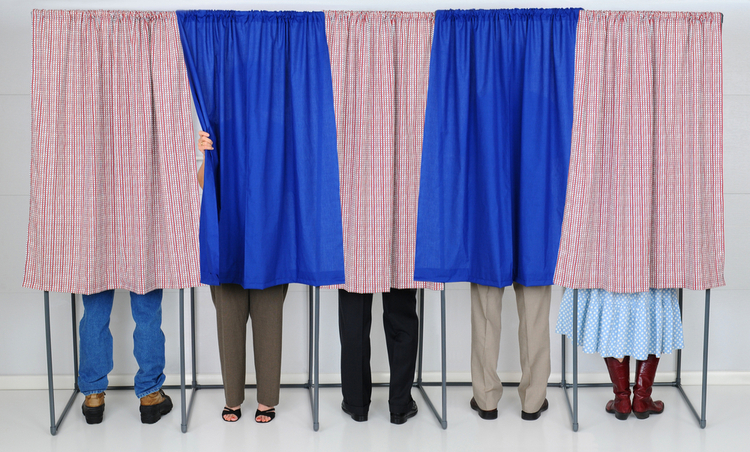Supreme Court upholds Arizona voting restrictions, including 'ballot harvesting' ban

Image from Shutterstock.
The U.S. Supreme Court ruled 6-3 Thursday that two Arizona voting restrictions do not violate Section 2 of the Voting Rights Act.
Justice Samuel A. Alito Jr. wrote the majority opinion, SCOTUSblog reports in early coverage.
Section 2 bans voting practices or procedures that result in a denial or abridgement of the right to vote on account of race or color.
The high court upheld two policies. One policy, a ban on “ballot harvesting,” prevents third parties from collecting and turning in early voter ballots, unless they are family, household members, mail carriers, election officials or caregivers.
The other measure, in effect in counties that use a precinct system, requires election officials to discard ballots that are cast outside the voter’s assigned precinct on Election Day.
Justice Elena Kagan dissented, in an opinion joined by Justices Stephen G. Breyer and Sonia Sotomayor.
The decision makes it much harder to challenge discriminatory voting laws in court, according to a statement by Sean Morales-Doyle, acting director of the Voting Rights and Elections Program at the Brennan Center for Justice at the New York University School of Law.
“The justices stopped short of eviscerating the Voting Rights Act, but nevertheless did significant damage to this vital civil rights law and to the freedom to vote,” Morales-Doyle said.
Writing at the Election Law Blog, Rick Hasen, a professor at the University of California at Irvine School of Law, said the decision “severely weakened” Section 2.
“Rather than focus on disparate impact—whether a law leads to minority voters registering or voting in lower numbers—the court applies a much broader totality of the circumstances test with a huge thumb on the scale favoring the state and its restrictive law,” Hasen wrote.
“This is not a death blow for Section 2 claims, but it will make it much, much harder for such challenges to succeed,” Hasen added.
The opinion comes days after the U.S. Department of Justice filed a Section 2 lawsuit challenging new voting procedures in Georgia.
Alito’s opinion was joined by Chief Justice John G. Roberts Jr. and Justices Clarence Thomas, Neil M. Gorsuch, Brett M. Kavanaugh and Amy Coney Barrett.
Alito said the core requirement of Section 2 is that voting be “equally open” to members of protected groups. The law also specifies that “the totality of circumstances” should be considered when reviewing a voting procedure, he said.
Alito said these important circumstances would be relevant:
• The size of the burden imposed by a challenged voting rule. “Mere inconvenience” is not enough to demonstrate a Section 2 violation.
• The degree to which a voting rule departs from what had been standard practice when Section 2 was amended in 1982. At that time, states typically required nearly all voters to cast their ballots in person on Election Day. Generally, only “narrow and tightly defined” categories of voters were allowed to cast absentee ballots.
• The size of any disparities from a rule’s impact on members of different racial or ethnic groups. “To the extent that minority and nonminority groups differ with respect to employment, wealth and education, even neutral regulations, no matter how crafted, may well result in some predictable disparities in rates of voting and noncompliance with voting rules. But the mere fact there is some disparity in impact does not necessarily mean that a system is not equally open.”
• Opportunities provided by the state’s entire voting system.
• The strength of a state’s interests served by a challenged voting rule. “One strong and entirely legitimate state interest is the prevention of fraud.”
Alito said Arizona’s precinct policy imposed only “modest burdens,” and its disparate impact was small. And he concluded that there was only “modest evidence” of racially disparate burdens created by the ballot-harvesting ban.
He also said Arizona “generally makes it quite easy for residents to vote.” All Arizonans can vote by mail for 27 days before an election, with no need for a special excuse.
Arizonans can also vote in person at early voting locations during that period.
In her dissent, Kagan said the majority’s set of rules limits Section 2 “from multiple directions.”
“What is tragic here is that the court has (yet again) rewritten—in order to weaken—a statute that stands as a monument to America’s greatness, and protects against its basest impulses,” she wrote.
The consolidated cases are Arizona Republican Party v. Democratic National Committee and Brnovich v. Democratic National Committee.
Write a letter to the editor, share a story tip or update, or report an error.


